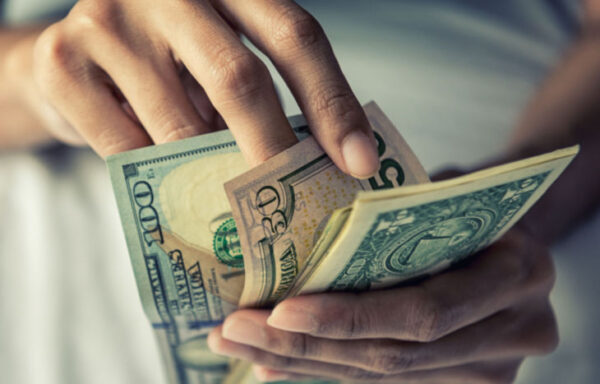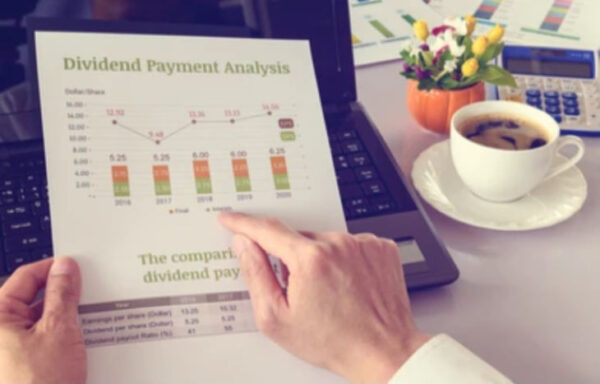Boeing’s Dividend History and Safety
On March 10, 2019, a Boeing 737 Max 8 aircraft flying out of Ethiopia crashed, killing all 157 people on board. Just five months prior to this tragedy a Boeing 737 Max 8 nosedived off the coast of Indonesia, killing all 189 of its passengers. Aviation authorities responded to these crashes by immediately grounding all 737 Max 8 planes. One year later and the 737 Max 8 remains grounded.
Boeing (NYSE: BA) has faced serious scrutiny. In fact, Boeing’s CEO Dennis Muilenburg testified in front of the House and Senate committees yesterday. Let’s see how the 737 Max 8 controversy affects Boeing’s dividend.
Business Overview and Highlights
Boeing is a $193 billion business. The company is headquartered in Chicago, IL and it employs 153,000 people. Last year Boeing pulled in $101 billion in sales and that breaks down to $661,000 per employee.
The company runs within the industrial sector and maintains a solid credit rating (A) from the S&P. This allows Boeing to issue cheap debt to expand operations and finance other initiatives.
Boeing’s stock steadily declined after the accidents that killed 346 passengers. Just a week before the first crash Boeing was trading at an all-time high of $440 per share. The stock is now trading around $344 per share.
Is the Boeing 737 Max 8 Safe?
The controversy with Boeing 737 Max 8 boils down to whether the aircraft itself is unsafe, or if the crashes are a result of human error. According to an article published by the Aircraft Owners and Pilots Association, aviation expert Fred Tecce thinks the problem is human error.
“I don’t think there’s anything wrong with the airplane. If you talk to the pilots who fly them, they’ll tell you it’s not the airplane so much as whether or not the manual properly describes what’s going on.”
That perceptions seems to have changed after the Senate hearing yesterday. Boeing executives admitted to the committee that updates made to the Boeing 737 Max 8 were indeed dangerous. Washington Senator, Mariah Cantwell, asked Boeing’s CEO and the 737 Max 8’s chief engineer whether their safety assessment was wrong.
“In hindsight, yes,” answered chief engineer John Hamilton.
Boeing’s 10-Year Dividend History
The company paid investors $1.68 per share a decade ago. Over the last 10 years, the dividend has climbed all the way to $7.19. That’s a 328% increase and you can see the annual changes below…
The compound annual growth is 15.6% over 10 years… and over the last year, the dividend climbed 20.4%. The increase in dividend growth is a good sign.
Boeing declared a quarterly cash dividend of $2.05 on October 21. That dividend will be made payable on December 6 to investors of record on November 8.
Boeing might work out as a great income investment. Let’s take a look at the yield…
Current Yield vs. 10-Year Average
Boeing’s long history of paying dividends makes it one of the best dividend stocks around. This also makes the dividend yield a great indicator of value. A higher yield is generally better for buyers. Sustainability is also vital and we’ll look at that soon.
The dividend yield comes in at 2.4% and that’s below the 10-year average of 2.8%. The chart below shows the dividend yield over the last 10 years…

The lower yield shows that investors have bid up the company’s market value. They might be expecting higher growth and payouts. But more often than not, the dividend yield is mean reverting with share price changes.
Improved Dividend Safety Check
Many investors look at the payout ratio to determine dividend safety. They look at the dividend per share divided by the net income per share. So, a payout ratio of 40% would mean that every $1 Boeing earns, it pays investors $0.40.
The payout ratio is a good indicator of dividend safety… but accountants can manipulate net income. They adjust for goodwill and other non-cash items. A better metric is free cash flow.
Here’s Boeing’s payout ratio based on free cash flow over the last 10 years…
The ratio is volatile over the last 10 years and the trend is down. The last year shows a payout ratio of 30.6%. This gives plenty of room for Boeing’s board of directors to raise the dividend.
As you can see from the first graph in this article, Boeing is dedicated to growing and maintaining its dividend. With the hearing yesterday in the rearview, Boeing might be able to soon put this controversy behind it and focus on the future.
If you’re interested in seeing more dividend research, keep an eye out for pieces from our Chief Income Strategist, Marc Lichtenfeld. You can also use our free dividend reinvestment calculator to project your dividend returns.
For more information on dividend-paying companies, check out our Dividend Stocks page. There is a wealth of information about the latest and greatest in the dividend investing world. Now you know about Boeing’s dividend, but what about Verizon’s dividend?







